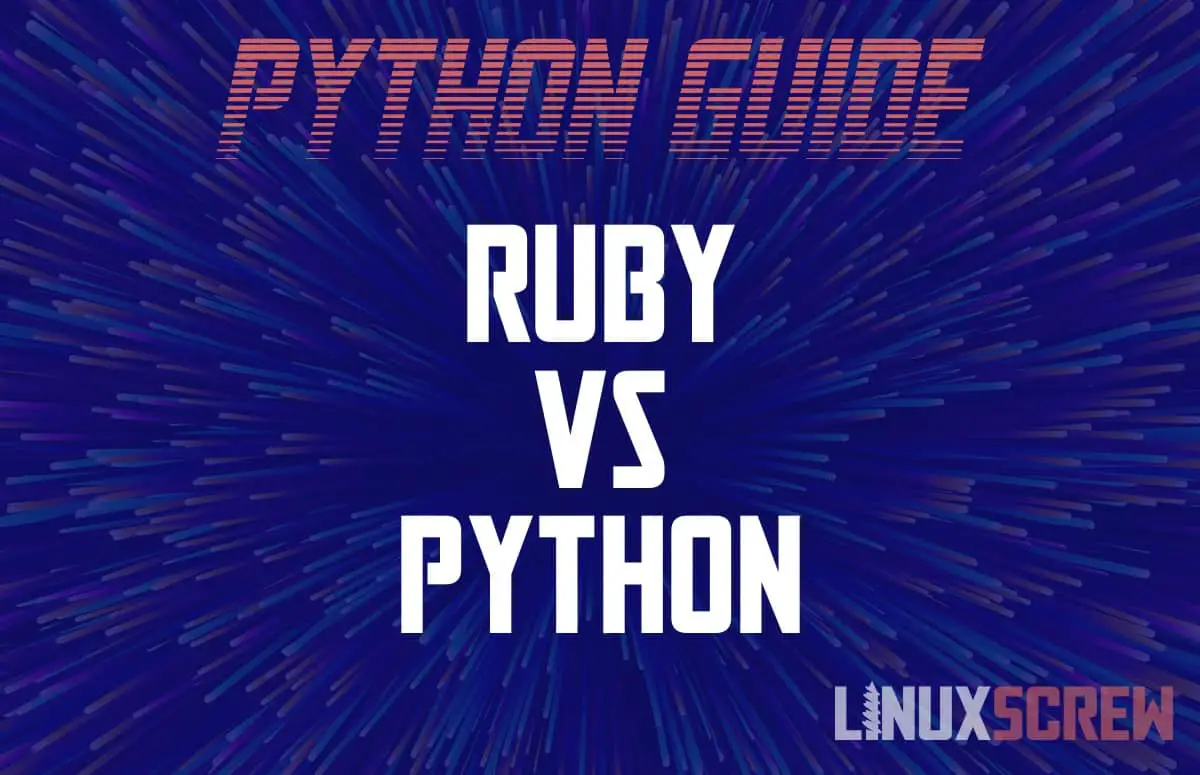Learning to program but aren’t sure which language to choose? Python and Ruby are popular choices. This article will provide info to help you decide.
What is Python?
Python is a general-purpose programming language that can be used for everything from scripting to building full-blown web and desktop applications.
It’s designed to be easy to read, easy to learn, and easy to write. It’s been in development since 1991, the current version being Python 3, which is under active development.
Python bills itself as ‘batteries included’ – many libraries for common tasks are included, reducing the amount of code you have to write to get a project up and running.
Because of its focus on simplicity and the useful included libraries, Python has become one of the most popular programming languages for both those looking to learn and experienced developers looking to focus on the problem they are solving rather than re-inventing the wheel.
What is Python Good For?
Python is great for beginners due to its clear syntax and its focus on readability. This makes it easy to figure out what your code (or someone else’s) is doing at a glance – making it easy to learn and understand.
It’s really good for just about any scenario where performance isn’t an issue. Python is an interpreted language rather than a compiled language. Compiled languages are converted to machine code which is tailored to run directly on your computer’s hardware – making it super fast. Python isn’t compiled, so there’s a bit of extra time for the code you’ve written to be interpreted into a language your computer can understand.
Practically, performance probably won’t be a big hurdle – modern computers are well equipped for running interpreted languages, and Python is popular in a lot of fields where performance does matter, so unless you’re looking to tailor your code to run on specific hardware, it’s probably not going to be a problem.
Who Uses Python?
Literally everyone. Python is popular with beginners, data scientists, web and app developers, and can even be used for scripting and building desktop applications (and toys).
What is Ruby?
Ruby is also a general-purpose programming language. Like Python, it’s also an interpreted language.
Ruby has a focus on being concise – this means the language focuses on using as few characters as possible to express the instructions it will execute. This makes it easy to read and information-dense once you know the syntax, but can make it a bit more difficult for beginners to figure out what code is meant to do.
Again, like Python, Ruby is cross-platform and quite portable and is available for most desktop and server operating systems and architectures.
What is Ruby Good For?
Ruby is popular with web developers due to its use with the Ruby on Rails web application framework which is used to build high-performance web applications.
It’s also used extensively in automation in DevOps, especially when running the Vagrant virtual machine management tool, which is written in Ruby.
Who Uses Ruby?
Developers building web apps, running virtual machines, and performing DevOps are frequent users of the Ruby programming language.
Which One Should I Choose in 2022?
If you’re new to programming and looking for a good jack-of-all-trades language, check out Python. It’s easy to get up and running with, easy to learn and there is a wealth of online tutorials and help available if and when you need it.
If you’re interested in Web development and are already familiar with JavaScript, give Ruby a look – it provides a powerful set of tools via the Ruby on Rails framework which can assist you with building rich web-based applications.

